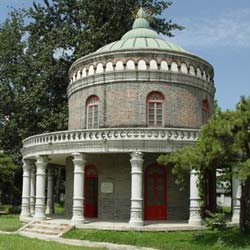
Run by the Beijing Waterworks Group, the museum reviews the history of tap water in Beijing since its beginning in 1908.
The imperial families of the Forbidden City used to drink spring water carried from Mount Yuquanshan in western Beijing, while everyday folk had to use wells with bitter, salty, or sweet water (if they were lucky).
When Empress Dowager Cixi agreed to a proposal from officials to build a clean water supply system, many people had doubts, deeming it foreign and strange tasting, due to bleaching powder and chlorine. It was even dubbed "foreigners' soap water" because in winter it had a milky appearance when pumped out of the water tower.
Main attractions: The museum is based in Beijing's first water works, the only one in the capital before 1949. The exhibition is set in an old high, strong and spacious building, formerly a pump house.
Exhibits include special coupons issued for people to fetch buckets of water from public water stations in town, wooden carts for sending flasks of tap water to people's homes, a US-imported stethoscope used for listening for water leaks from pipes, water quality control examination facilities, and a miniature, active tap-water filtration system.
Eye-catchers: Visitors get to learn about the development of the tap water system in Beijing via pictures and exhibits. Outside the museum there are bigger exhibits such as huge tunnels, steam engines and ancient stone wells. The architecture is well worth a look too, especially a German designed pavilion where water was filtered before being pumped off.
Add: A6, Dongzhimen Beidajie (in the Qingshuiyuan Compound);
Entry ticket: 5 yuan, 2 yuan for students
Opening time: 9 AM - 4 PM, Wednesday - Sunday;
Traffic: Take subway to get off at Dongzhimen, go north from the crossroads. (The museum is opposite the Russian Embassy.)
Tel: 86-10-64650787
(China Daily February 24, 2006)
|

